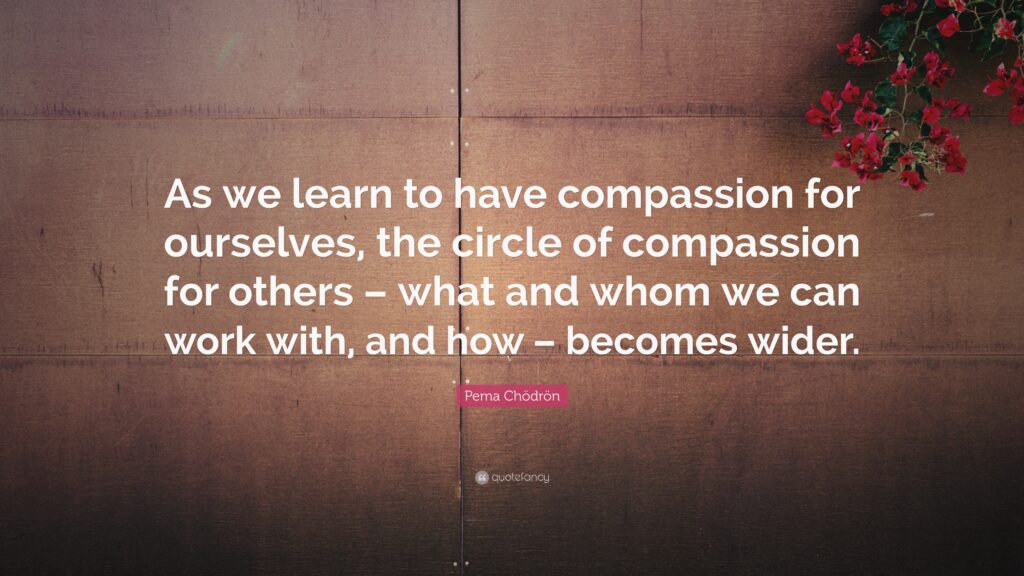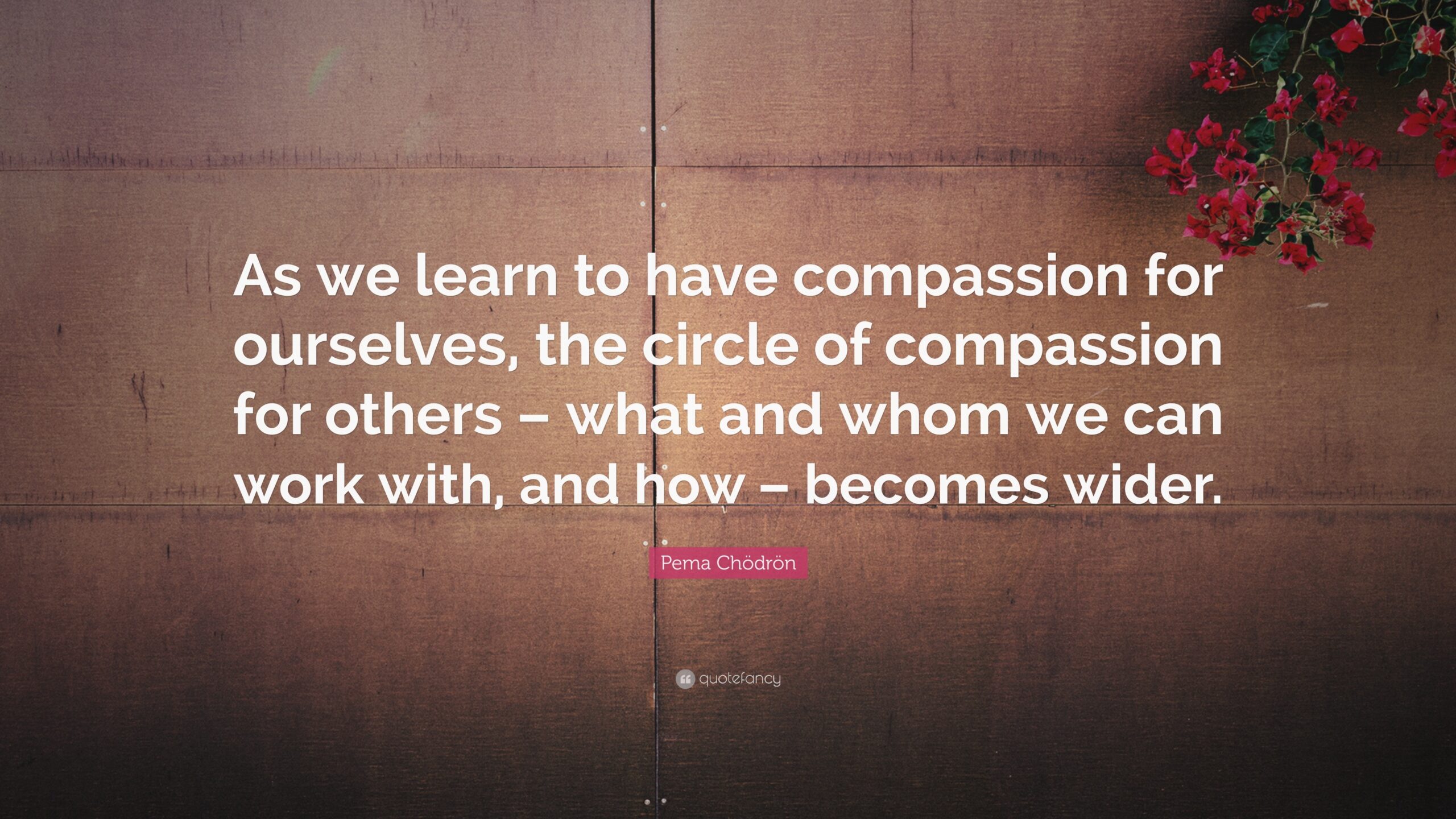
Discover the Healing Power of Compassion: Quotes That Will Soothe Your Spirit
In a world often characterized by division and conflict, the act of compassion shines as a beacon of hope and healing. The ability to empathize with others, to understand their suffering, and to offer kindness without judgment is a profound human trait. This article delves into the transformative power of compassion, exploring its impact on our mental and emotional well-being, and offering a collection of quotes designed to inspire and uplift your spirit. We will explore why compassion is essential for personal growth and societal harmony, and how embracing it can lead to a more fulfilling and meaningful life. The core message is simple: compassion heals, connects, and transforms.
The importance of compassion in today’s world cannot be overstated. We are constantly bombarded with news of global crises, political unrest, and personal tragedies. In this environment, it is easy to become desensitized to the suffering of others. However, it is precisely in these challenging times that compassion becomes most critical. It allows us to see beyond the headlines, to recognize the shared humanity that binds us together, and to act in ways that promote understanding and peace. Cultivating compassion is not merely a personal virtue; it is a social imperative.
The Science of Compassion: How Empathy Heals
The benefits of compassion are not just anecdotal; they are supported by scientific research. Studies in neuroscience and psychology have demonstrated the profound impact that compassion has on our mental and physical health. When we practice compassion, our brains release oxytocin, often referred to as the “love hormone.” Oxytocin reduces stress, lowers blood pressure, and promotes feelings of connection and well-being. Furthermore, acts of compassion can activate the reward centers of the brain, leading to a sense of fulfillment and happiness. This biological response underscores the inherent link between compassion and our overall health.
Moreover, engaging in compassionate acts can buffer against the negative effects of stress and anxiety. By focusing on the needs of others, we shift our attention away from our own worries and concerns, which in turn can reduce feelings of overwhelm and isolation. This shift in focus allows us to experience a sense of purpose and meaning, which are crucial for maintaining good mental health. The very act of being compassionate is, in essence, a form of self-care.
The Transformative Power of Compassion in Relationships
Compassion is the cornerstone of healthy relationships. It allows us to navigate conflicts with empathy, to forgive shortcomings, and to build trust. When we approach others with compassion, we create a safe space for vulnerability and open communication. This fosters deeper connections and strengthens the bonds that tie us to family, friends, and partners. Without compassion, relationships can become strained, leading to resentment, anger, and ultimately, breakdown.
Consider the role of compassion in conflict resolution. Instead of responding to anger with anger, a compassionate approach encourages us to seek to understand the other person’s perspective. This does not necessarily mean condoning their behavior, but rather attempting to see the situation from their point of view. This can lead to more constructive conversations and more effective solutions. This is especially true in difficult circumstances where emotions run high.
Quotes to Inspire Your Compassionate Journey
The following quotes offer a glimpse into the wisdom and beauty of compassion. They serve as a reminder of the power of empathy, kindness, and understanding. Let these words guide you on your journey to cultivate a more compassionate heart and a more fulfilling life.
- “The best way to find yourself is to lose yourself in the service of others.” – Mahatma Gandhi
- “Compassion is not a relationship between the healer and the wounded. It’s a relationship between equals. Only when we know our own darkness well can we be present with the darkness of others. Compassion becomes real when we recognize our shared humanity.” – Pema Chödrön
- “Compassion is the radicalism of our time.” – Dalai Lama
- “Kindness is the language which the deaf can hear and the blind can see.” – Mark Twain
- “The little things? The little moments? They aren’t little.” – Jon Kabat-Zinn
- “Darkness cannot drive out darkness: only light can do that. Hate cannot drive out hate: only love can do that.” – Martin Luther King, Jr.
- “Compassion is not a virtue – it is a necessity. It is our duty to help those in need.” – Karen Armstrong
- “Be kind, for everyone you meet is fighting a hard battle.” – Plato
- “If you want others to be happy, practice compassion. If you want to be happy, practice compassion.” – Dalai Lama
Practical Ways to Cultivate Compassion in Your Daily Life
Compassion is not a passive emotion; it is an active practice. It requires conscious effort and a willingness to step outside of our own comfort zones. Here are some practical ways to cultivate compassion in your daily life:
- Practice Active Listening: Truly listen to others without interrupting or formulating your response. Focus on understanding their perspective.
- Offer Acts of Kindness: Perform small acts of kindness daily, such as holding a door open, offering a compliment, or helping someone in need.
- Volunteer Your Time: Dedicate your time to a cause you care about. Volunteering allows you to connect with others and make a tangible difference in their lives.
- Practice Self-Compassion: Treat yourself with the same kindness and understanding that you would offer to a friend. Forgive yourself for your mistakes and acknowledge your own struggles.
- Meditate on Compassion: Engage in meditation practices that focus on cultivating feelings of empathy and loving-kindness towards yourself and others.
- Challenge Your Preconceptions: Be open to challenging your own biases and assumptions about others. Try to see situations from different perspectives.
The Ripple Effect: How Compassion Impacts Society
The benefits of compassion extend far beyond the individual. When we cultivate compassion, we contribute to a more just, equitable, and peaceful society. Compassionate individuals are more likely to engage in acts of service, to advocate for social justice, and to work towards solutions to global challenges. Compassion creates a ripple effect, inspiring others to act with kindness and empathy.
In a world grappling with complex problems such as climate change, poverty, and inequality, compassion is more important than ever. It allows us to see beyond our differences and to recognize our shared responsibility for the well-being of the planet and all its inhabitants. By fostering a culture of compassion, we can create a society that values empathy, cooperation, and understanding.
The Ongoing Journey: Embracing Compassion as a Way of Life
Cultivating compassion is not a destination but a journey. It requires ongoing effort, self-reflection, and a willingness to learn and grow. There will be times when we struggle, when we fail to meet our own expectations, or when we encounter challenges that test our capacity for empathy. However, it is in these moments that the practice of compassion becomes most essential.
Remember that every act of kindness, no matter how small, makes a difference. Every moment of empathy, every expression of understanding, contributes to a more compassionate world. Embrace the journey, be patient with yourself, and allow the healing power of compassion to transform your life and the lives of those around you. The world needs more compassion, and it starts with you.
[See also: The Power of Empathy: Building Bridges in a Divided World, The Art of Forgiveness: Letting Go and Finding Peace, Mindfulness and Mental Health: How Meditation Can Improve Your Well-being, The Importance of Kindness in a Chaotic World]


